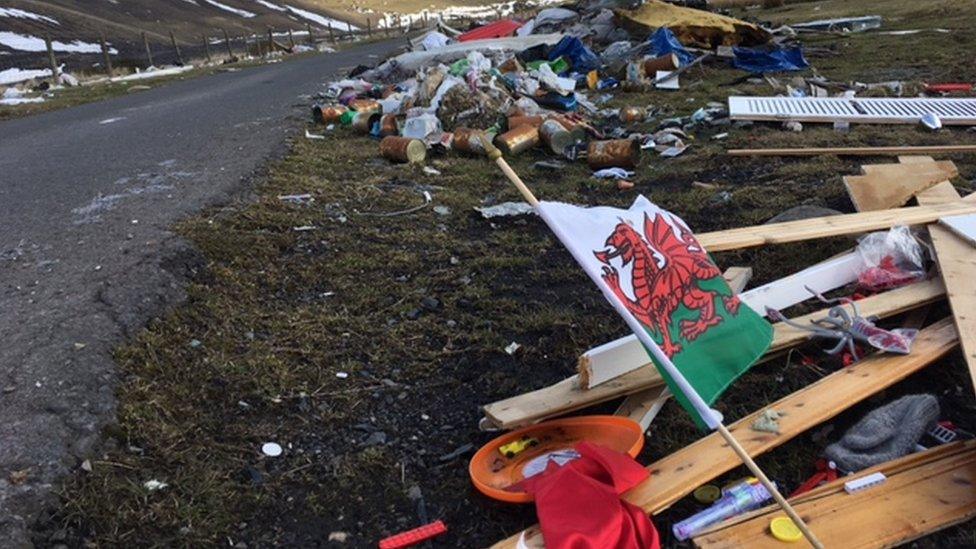Hot summer saw Wales' grassfires soar 75% in one year
- Published
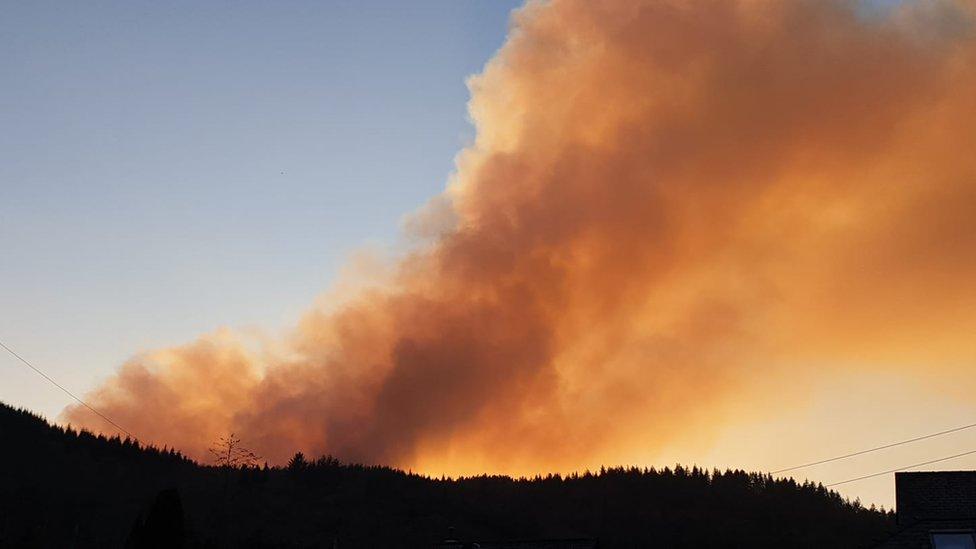
Grassfires spread quickly, especially during the dry summer months
Arsonists were responsible for a 75% spike in grassfires in the past year, new figures have shown.
A total of 2,850 fires were started from April 2018 to March 2019, compared with 1,627 in the 12 months previously.
Fire chiefs said these figures were "very disappointing", and attributed it to last year's hot and dry summer.
Wales' fire services have developed an educational programme in a bid to tackle the problem, resulting in 60,000 speeches to schoolchildren.
Kelvin Griffiths, 65, a farmer from Carmel, Gwynedd, lost grazing land in a grassfire on Cilgwyn Mountain last year, which shares common land on Ywch Gwyrfai.
"There was a huge fire stretching for a mile long. I have cattle and sheep that graze there," he said.
"There are houses on the common nearby who were really worried."
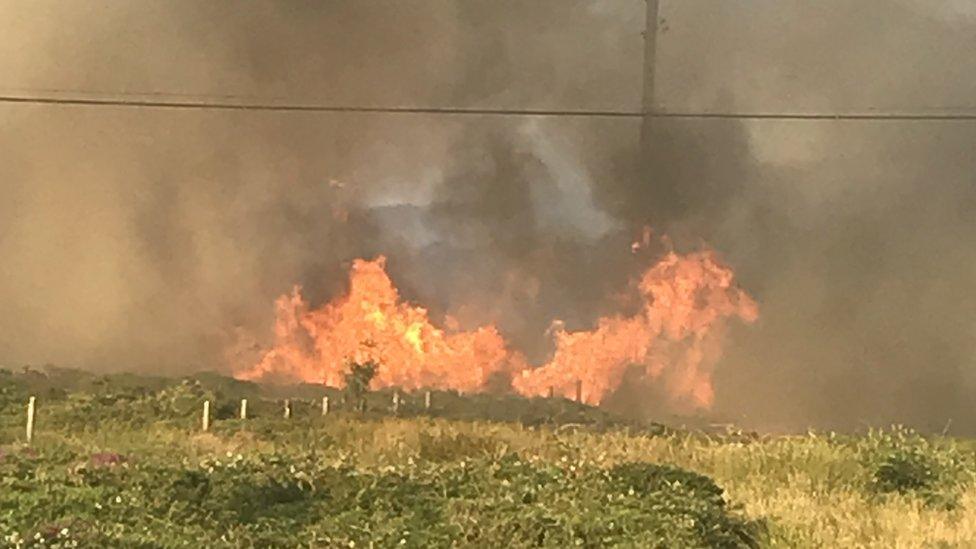
Lisa Jones - who lives nearby - took this picture of the fire in Carmel
Operation Dawns Glaw, external was set up in 2016 to tackle deliberate grassfires, involving all three of Wales' fire services.
The UK heatwave of 2018 - one of the driest and warmest summers in Wales since 1995 - also meant more fires.
The operation's chairman Mydrian Harries said: "Sadly in the last year we've seen that increase and predominantly attributed it to the hot weather in June, July and August.
"When the weather starts drying, any fire that commences does spread rapidly.
"Add to that some warm currents and prevailing winds and we do find the fire spreads rapidly. Unfortunately there's a sector out there who do see this as opportunities to burn."
Mr Harries said about 50% of all last year's grassfires were recorded as deliberate.
"While these statistics are very disappointing, they should not take away from the overall success of Operation Dawns Glaw," he said.
Fire officers are also looking to tackle fly-tipping and countryside rubbish fires, which can spread to grassland, starting huge fires.
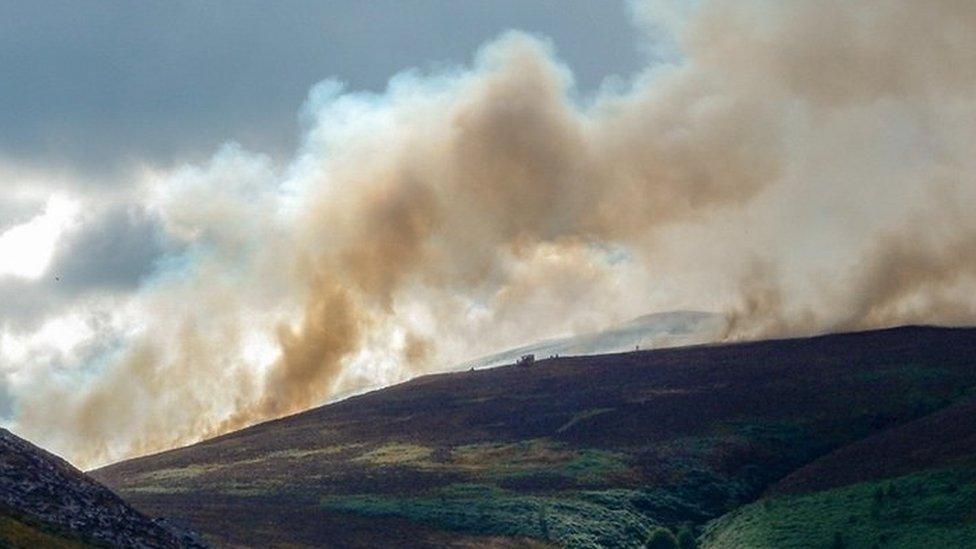
Natural Resources Wales says land can take "decades" to recover from severe grassfires
Land owners and farmers are allowed to do controlled burns on their land between October and March, but only if they have created a specific plan for starting and containing the fire.
Anyone carrying out one of these burns outside of these months or without a plan is committing arson.
However, Mr Griffiths believes these strict regulations, external mean farmers' land becomes overgrown, making it more at risk of spreading grassfires.
"Now there are so many restrictions on burning, if you want to burn, you have to inform the police, create fire barriers and have an army of people," he said.
"It's not feasible. It overgrows and then it becomes a threat and cattle and sheep can't access the grazing.
"Once you ignite it just goes 'whoosh' and if there's a strong wind behind, it takes no time at all."
Mid and West Wales Fire and Rescue Service said it was not its legislation to police.
A spokesman said: "What we're doing with the Welsh government and partners in Dawns Glaw is to tell people to burn within the prescribed periods."
The Welsh Government said it was "irresponsible" to set a fire in open land "without proper controls and safeguards, or outside the permitted season".
"Such fires can very easily spread out of control, for example if the wind strengthens or changes direction, and can take days or even weeks to extinguish, especially if they spread into peat," a spokesman said.
"This in turn ties up fire crews who might well be needed to attend other incidents. The regulations are designed to greatly reduce these risks."
- Published30 March 2019
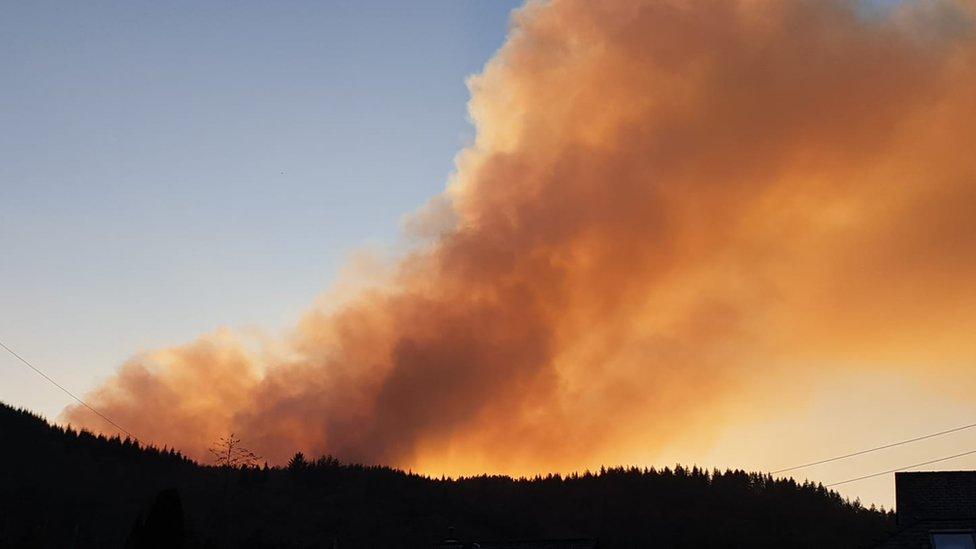
- Published21 July 2018
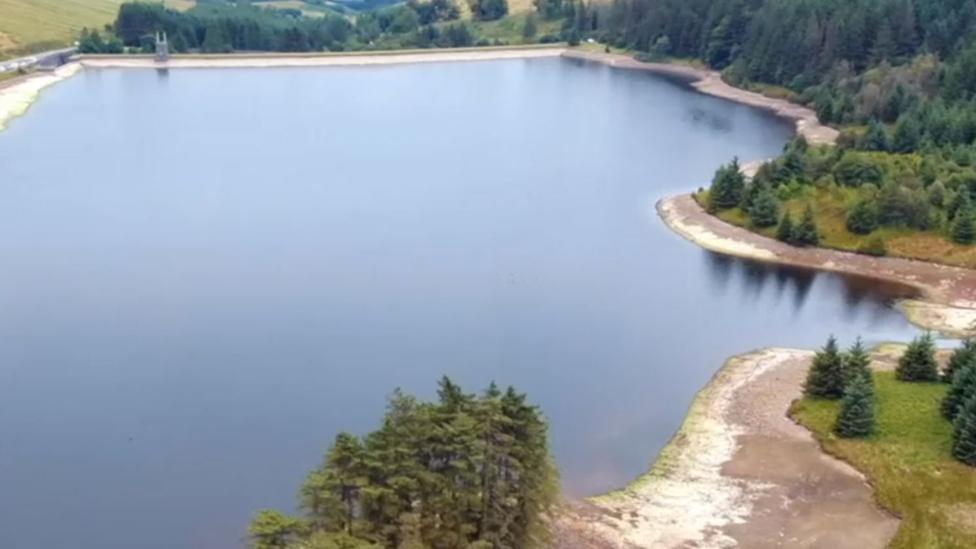
- Published23 March 2018
